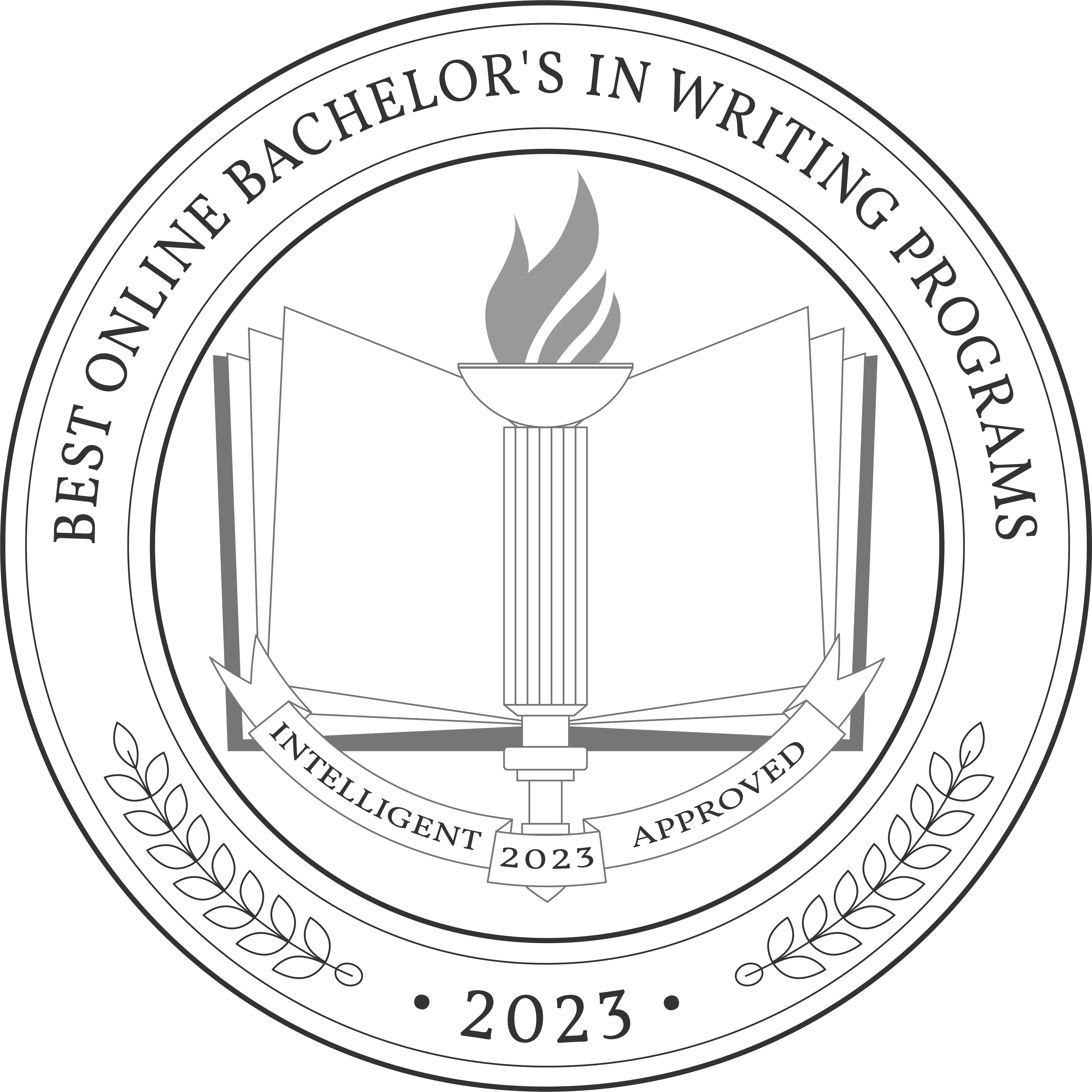Why This Matters
-
2% PROJECTED JOB DECLINE FOR WRITERS
The Bureau of Labor Statistics (BLS) projects that there will be a 2% job decline for writers and authors through 2029. This means you will likely need a degree to remain competitive in the field.
-
EARN MORE THAN $60,000 PER YEAR
Writers and authors who possess a bachelor’s degree in writing earned an average of $63,200 per year in 2019.
-
REDUCE YOUR UNEMPLOYMENT RISK WITH A BACHELOR’S DEGREE
Workers who only have a high school diploma have an unemploymenet rate of 9%, while workers with a bachelor’s degree have an unemployment rate of just 5.5%.
Our Research
This list includes a variety of writing programs, including Bachelor of Arts and Bachelor of Science degrees in writing, as well as Bachelor of Arts degrees in English. Some programs cover creative writing, while others focus on technical writing and copywriting.
Schools on this list are accredited by regional and national organizations that oversee bachelor’s degree programs throughout the country. This includes the Southern Association of Colleges and Schools Commission on Colleges (SACSCOC) and the Higher Learning Commission (HLC). Credits obtained from accredited schools are more easily transferable if you plan to upgrade your degree or switch schools. Additionally, most employers prefer degrees from schools with regional or national accreditations.
- 77 hours to write this article
- 84 universities and colleges we assessed
- 96 education programs we compared
The Top 50 Online Bachelor’s in Writing Programs

Discover More Options
What You Should Know About This Degree
If you’re considering a career in writing, it’s important to determine the type of writing you want to pursue before you choose a degree program. If you’re a storyteller, a degree in creative writing might be right for you. On the other hand, if it’s technical writing you’d like to make a career of, you might want to enroll in a program that’s more specific to your needs. If you’re not quite sure what type of writing you’d like to do, a Bachelor of Arts in English can help lay a solid foundation for a career in writing.
Regardless of the path you choose in your writing career, obtaining your degree from an accredited university is vital. Look for a school that’s accredited by organizations such as SACSCOC and HLC to ensure your degree is recognized by prospective employers and other educational institutions.
What’s Next?
Here are some questions to ask when researching online bachelor’s in writing programs:
- Are courses offered synchronously or asynchronously? Most writing degree programs are flexible, with many offering part-time and distance learning options that enable students to learn at their own pace. There are also full-time options for students looking to earn their degree quickly.
- Am I eligible for this program? Bachelor’s degree programs in writing are typically open to anyone with a high school education; however, there may be certain requirements when it comes to high school classes and your GPA. Be sure to check the admission requirements of the program you’re applying to before you submit your application.
When researching bachelor’s in writing programs, it’s important to pay close attention to the application process at each school. Ensure you’re submitting everything the school requests, which might include high school transcripts, writing samples, and letters of recommendation. Make sure to also keep track of application deadlines, which can usually be obtained by visiting the school’s website or contacting the admissions department.
You might require financial aid for your education as well. Do your research before you apply and find out what’s available to you. Depending on your situation, you might qualify for need-based financial aid, merit-based scholarships, and tuition assistance from your employer.